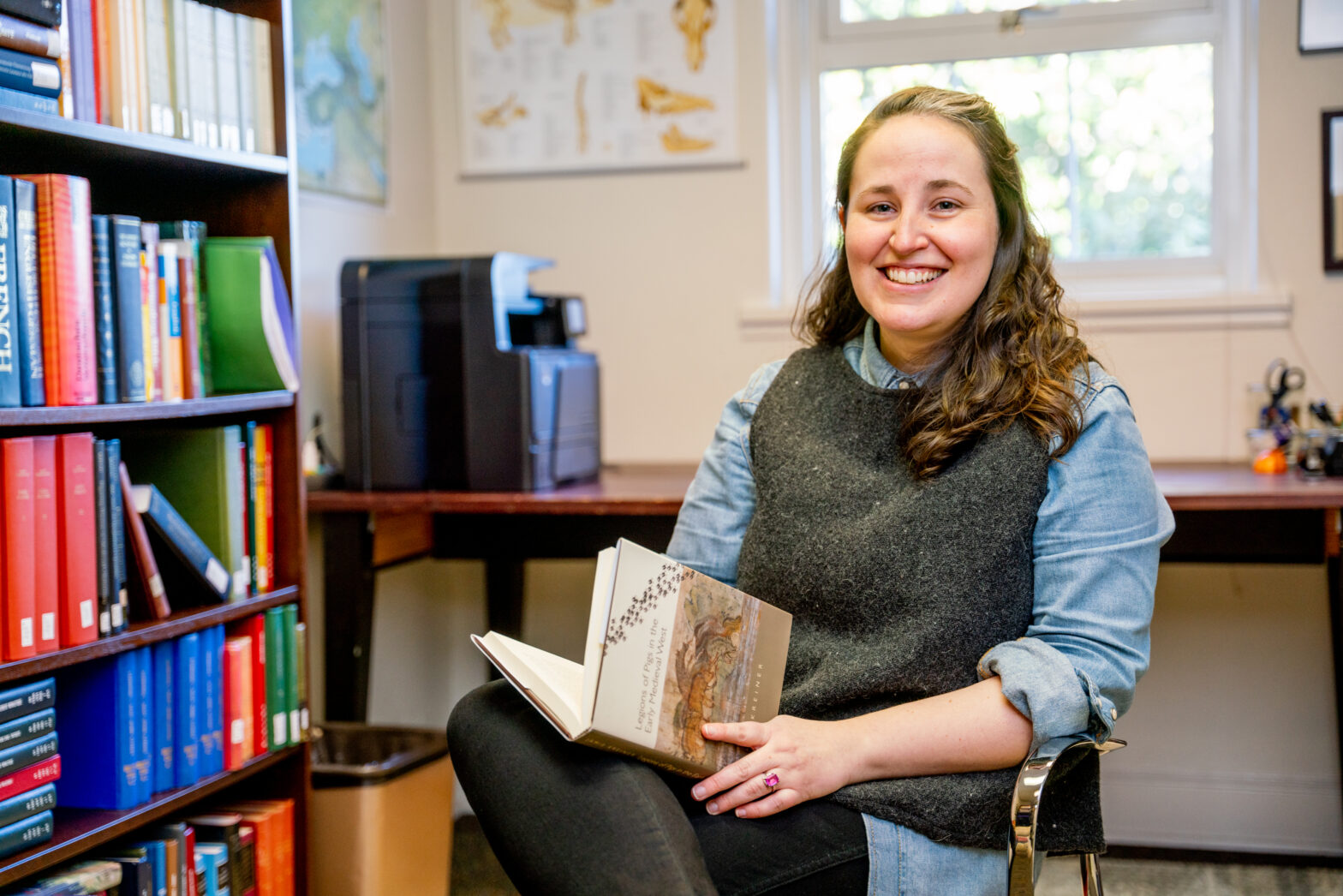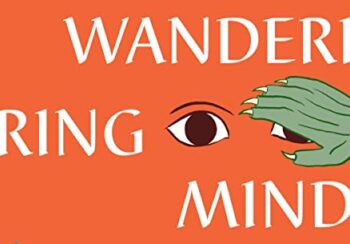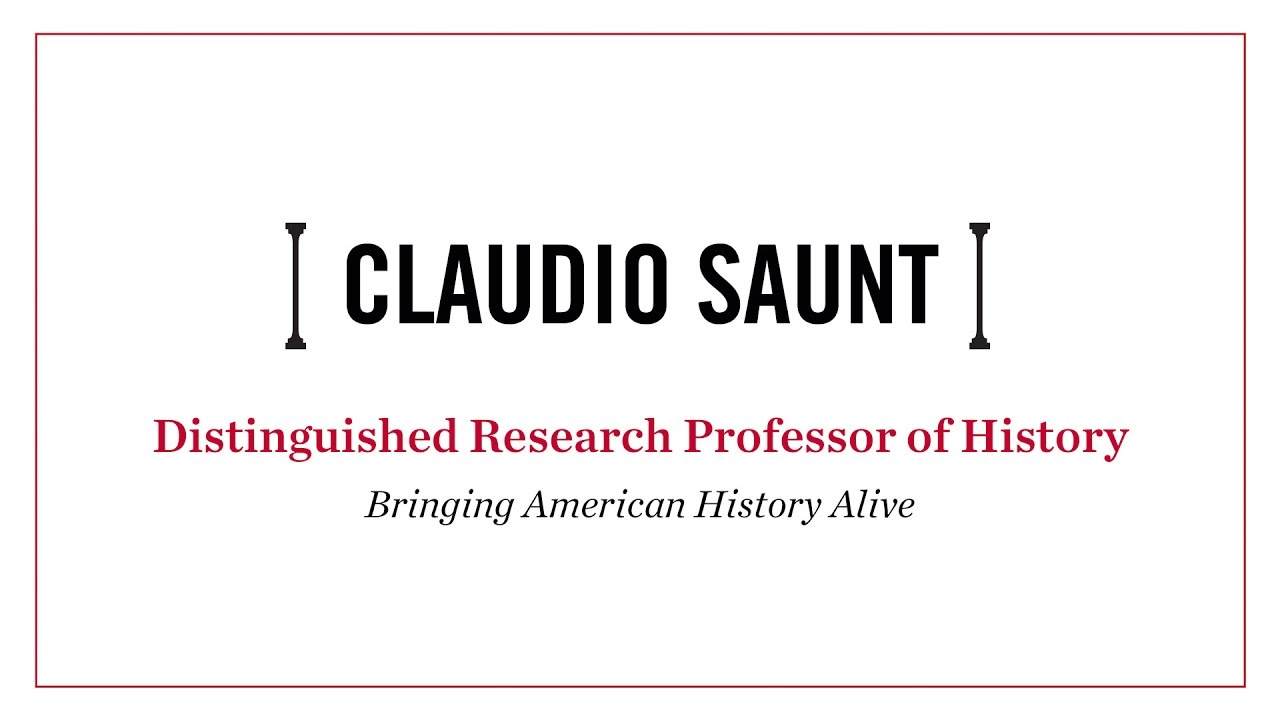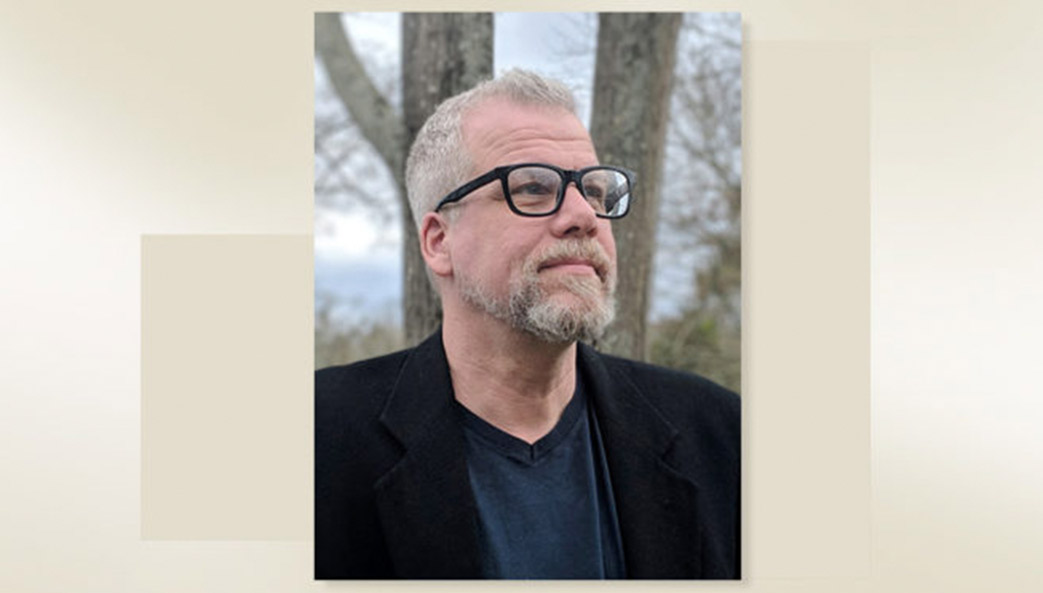War. Politics. Changing technology. Plagues and famine and migration and outsized personalities. These are major forces that shape the world we live in, and many historians spend their careers studying them.
Jamie Kreiner takes a different approach. A professor of history in the Franklin College of Arts & Sciences who specializes in the early Middle Ages, Kreiner looks for the quieter agents at work.
“I like getting beneath those obvious forces,” Kreiner said. “What else changes people’s minds that we’re not necessarily thinking of—either because it’s literally silent or just because it’s been underexamined? That’s the weird thread that runs through all the projects I’ve done.”
Take pigs—which, if not silent, rarely speak in perfect syntax. Ever since she was in graduate school, Kreiner knew she would write about this intelligent and enterprising species that’s been linked to humans for 9,000 years.
“I was working on my Ph.D. dissertation [on early medieval politics],” Kreiner said, “and pigs kept coming up in documents where I wasn’t looking for them, like in major royal decrees.”
Eventually this curiosity became a research project, and that project became Kreiner’s second book, Legions of Pigs in the Early Medieval West (Yale University Press, 2020), which won her a UGA Creative Research Medal in 2022. The book explored the cultural role pigs played in medieval societies across Europe and northwest Africa in the waning days of the Roman empire and beyond.
Poring through textual records and archaeological findings, Kreiner uncovered a host of human cultural accommodations made for pigs—such as the (often quite specific) medieval laws governing farming and swineherding, royal tax policies, or the many religious musings about pigs and their spiritual implications.
“Historians often don’t think of animals as having much of an influence on people,” she said. “We think of it as the other way around, but in the early Middle Ages, this engagement people had with their livestock really made an impact on all these different domains of everyday life.”
Kreiner’s first book, The Social Life of Hagiography in the Merovingian Kingdom (Cambridge University Press, 2018), detailed another underappreciated influence that helped to compel Frankish rulers to govern more benevolently beginning in the 5th century A.D. Hagiographies were stories written about early Christian saints and church leaders that took pains to point out the good deeds they performed.
“We had thought these were just sort of instructional manuals for Christians on how to be pious, as well as personalized stories about their subjects,” she said. “It’s actually a very politicized literature that’s representing what good government looks like in this subtle way. The quieter force operating there is that those [hagiographical subjects] are emblematic of a whole different social arrangement that the authors are advocating for. They just not telling us directly.”
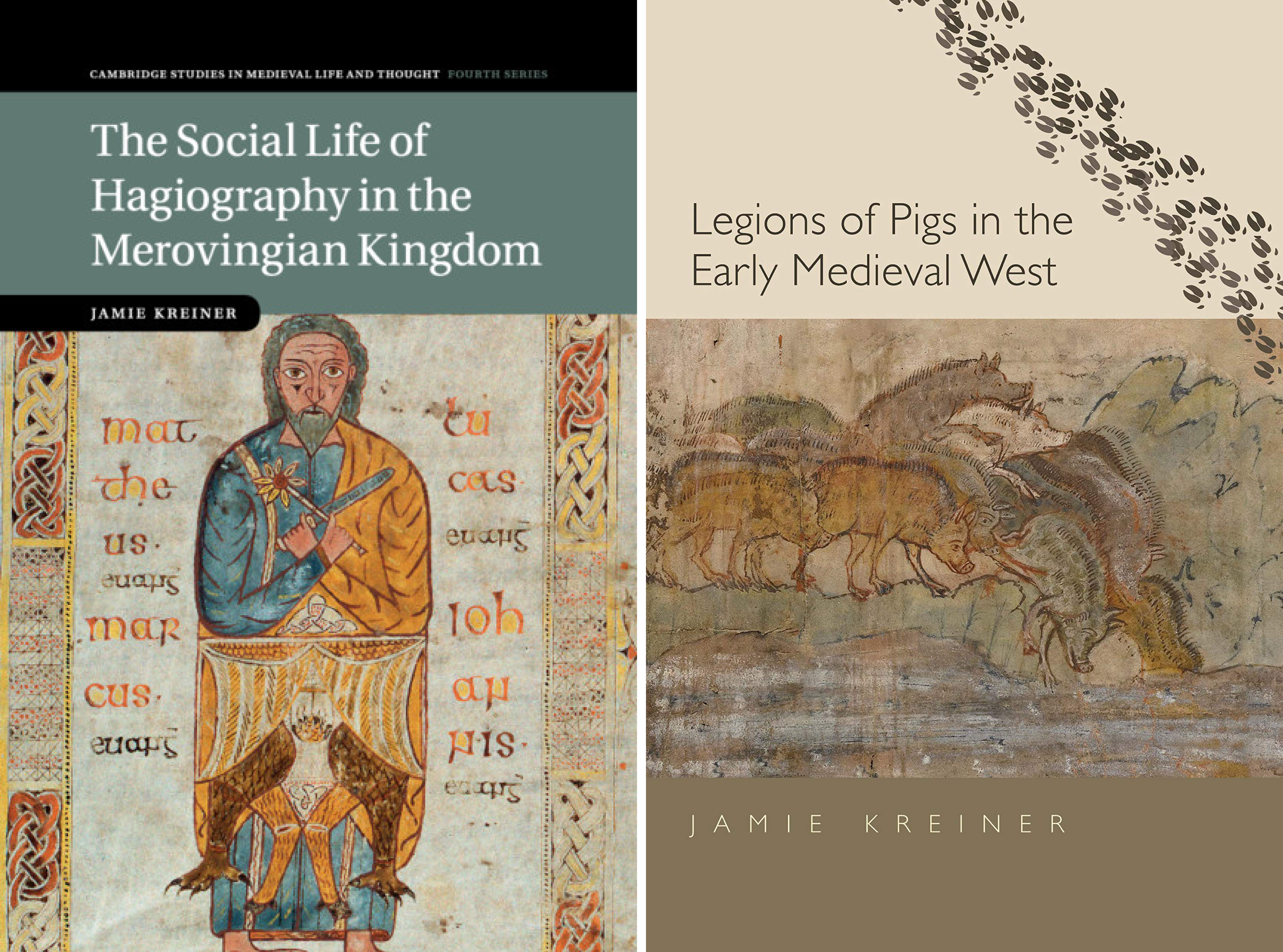
Kreiner’s first book (left) examined the effects of religious hagiographies—critical studies of the lives of saints—on Merovingian political culture between the 5th and 8th centuries in Western Europe. Her second book (right), which earned her a UGA Creative Research Medal in 2022, looked at the many ways pigs and swineherding influenced medieval cultures from Europe to Northern Africa.
The gospel of the humanities
As associate dean for humanities, as well as a former department head and director of undergraduate studies in history, Kreiner tries to exert her own subtle influence in Franklin College governance. In addition to representing the interests of humanities faculty and students, she also has responsibility for college assessment, accreditation, international education and experiential learning.
It’s a wide portfolio and one that speaks to her commitment not only to the business of Franklin and the opportunities it provides its students, but also her passion for promoting the humanities in a world where humans find it increasingly hard to relate to each other.
“At their root, humanities pay attention to this central tension of what it means to be human, especially to be human in a global context. What are the things that bind us together?” she said. “On the other hand, it’s very attentive to the differences between people. How are our identities and interests and experiences profoundly unlike each other? For any practitioner or student of the humanities, it helps to understand perspectives that are different from theirs, to make sense of a world that at first seems foreign or confusing.
“In the process of investigating those differences, that’s where you develop the common ground.”
Indeed, one of the things Kreiner admires most in her students is their eagerness to dive into the unfamiliar. It’s something that’s remained consistent in the decade she’s been teaching in Athens.
“When I first started at UGA, one of the most striking things was how excited and curious the students are to dig into these questions,” she said. “I was impressed by how they treat their education as something that’s intellectually formative, not just a certification process to get a job. They’re always so committed to digging into what seems weird and unfamiliar, and in the process trying to make sense of it and relate to it.”
Medieval distractions
When she was an undergraduate herself, Kreiner discovered what would become her scholarly interest by the kind of accident every student can understand. Needing to take a history course and finding her preferred class already full, she enrolled in a course on the early Middle Ages. And that’s where a good portion of her brain has remained ever since.
Her book on the Merovingians emerged from her Ph.D. dissertation, and from grad school onward she’d been tucking away notes for the book on pigs that she knew she would write one day. Her next project, due to publish in 2023, looks at early Christian monks and how they dealt with a phenomenon quite familiar to 21st century readers: distraction.
“They were very easily distracted,” Kreiner said of these monks. “They complained about it all the time, but the solutions they came up with to deal with it are often not things we would’ve thought of at all. Sometimes they make sense with what we know now, based on contemporary psychology, but in other cases they came up with something very ingenious and we don’t use it anymore. It’s a really cool thing to recover.”
Renunciation, of course—of the typical forces that occupy people’s attention, such as family contact, property ownership, etc.—was a common path for concentration, as well as restraint in the face of temptations like food, sex and comfort. But some monks came up with their own mental techniques to help their brains focus on matters theological. For example, the 12th century Augustinian canon Hugh of Saint Victor imagined a complex visual template (an ark) as a meditational device for his religious ideas, into which he could add any number of conceptual adornments.
“This is obviously before the professionalization of psychology by a long shot, but they were really thinking in ways that by our standards would count as psychological questions, sociological questions, even cognitive questions,” Kreiner said. “The biggest takeaway was that there’s not just one fix—monks were adamant that you needed a concert of strategies to get anywhere close to being able to concentrate.
“Just having your phone turned off is not going to be the only strategy,” she said. “They were very sympathetic to how you were never going to fix it completely. Learning to deal with your limitations is something the monks are really good at teaching us.”



